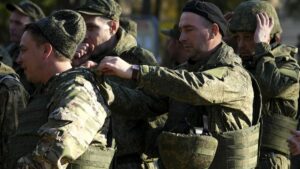Intense Exercise Could Impact Immune System. Study Reveals How

Excessive vigorous exercise could potentially suppress the immune system, according to a recent study.
The study, published in the journal Military Medical Research, analysed more than 4,700 post-exercise fluid molecules from firefighters.
This finding raised concerns for individuals in physically demanding professions requiring intense fitness training, such as emergency workers and athletes.
According to biomedical scientist Ernesto Nakayasu from Pacific Northwest National Laboratory (PNNL), individuals with high fitness levels might be more susceptible to viral respiratory infections immediately after intense exercise, possibly due to reduced inflammatory activity needed to combat infections.
While there is ample evidence supporting the positive effects of moderate physical activity on the immune system over the long term, the impact of vigorous exercise on the immune system immediately following the activity remains a subject of controversy.
The study by Nakayasu and colleagues focused on 11 firefighters, analysing blood plasma, urine and saliva before and after 45 minutes of intense exercise, simulating the demands of their profession.
The researchers aimed to gain insights into the early stages of exhaustion-related dangers and explore ways to mitigate risks for first responders, athletes and military personnel.
Despite the well-established health benefits of exercise, the study revealed potential signs of immune suppression in firefighters.
Changes in fluid, energy and oxygen levels were accompanied by a decrease in inflammation-related molecules and an increase in opiorphin, a substance known to dilate peripheral blood vessels.
While the researchers acknowledge uncertainties about the short-term effects of these changes on the immune system, they speculate that opiorphin might enhance blood flow to muscles, improving oxygen and nutrient delivery during exercise.
Additionally, changes in the participants’ oral microbiome were observed, possibly linked to increased antimicrobial peptides in response to immune suppression.
However, the study’s limitations, such as the small sample size of healthy, active men and the unique exposures of firefighters to pollutants during fires, warrant further investigation in a broader community.
Despite these considerations, the researchers, drawing on previous studies, suggest a potential connection between physical demands and a higher incidence of respiratory infections.
Source : India Today





